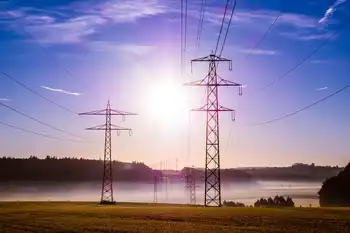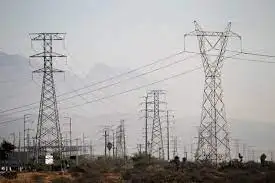TVA Rates and Renewable Energy Scrutiny spotlights electricity rates, distributed energy resources, solar and wind deployment, natural gas plans, grid access charges, energy efficiency cuts, and House oversight of lobbying, FERC inquiries, and least-cost planning.
Key Points
A congressional probe into TVA pricing and practices affecting renewables, energy efficiency, and climate goals.
✅ House panel probes TVA rates, DER and solar policies.
✅ Efficiency programs cut; least-cost planning questioned.
✅ Inquiry on lobbying, hidden fees; FERC scrutiny.
The Tennessee Valley Authority is facing federal scrutiny about its electricity rates and climate action, amid ongoing debates over network profits in other markets.
Members of the House Committee on Energy and Commerce are “requesting information” from TVA about its ratepayer bills and “out of concern” that TVA is interfering with the deployment of renewable and distributed energy resources, even as companies such as Tesla explore electricity retail to expand customer options.
“The Committee is concerned that TVA’s business practices are inconsistent with these statutory requirements to the disadvantage of TVA’s ratepayers and the environment,” the committee said in a letter to TVA CEO Jeffrey Lyash.
The four committee members — U.S. Reps. Frank Pallone, Jr. (D-NJ), Bobby L. Rush (D-IL), Diana DeGette (D-CO), and Paul Tonko (D-NY) — suggested that Tennessee Valley residents pay too much for electricity despite TVA’s relatively low rates, even as regulators have, in other cases, scrutinized mergers like the Hydro One-Avista deal to safeguard ratepayers, underscoring similar concerns. In 2020, Tennessee residents had electric bills higher than the national average, while low-income residents in Memphis have historically faced one of the highest energy burdens in the U.S.
In 2018, TVA reduced its wholesale rate while adding a grid access charge on local power companies—and interfered with the adoption of solar energy. Internal TVA documents obtained through a Freedom of Information Act request by the Energy and Policy Institute revealed that TVA permitted local power companies to impose new fees on distributed solar generation to “lessen the potential decrease in TVA load that may occur through the adoption of [behind the meter] generation.”
Additionally, the committee said TVA is not prioritizing energy conservation and efficiency or “least-cost planning” that includes renewables, as seen in oversight such as the OEB's Hydro One rates decision emphasizing cost allocation. TVA reduced its energy efficiency programs by nearly two-thirds between 2014 and 2018 and cut its energy efficiency customer incentive programs.
At this time, TVA has not aligned its long-term planning with the Biden administration’s goal to achieve a carbon-free electricity sector by 2035. TVA’s generation mix, which is roughly 60% carbon-free, comprises 39% nuclear, 19% coal, 26% natural gas, 11% hydro, 3% wind and solar, and 1% energy efficiency programs, according to TVA.
The committee is “greatly concerned that TVA has invested comparatively little to date in deploying solar and wind energy, while at the same time considering investments in new natural gas generation.”
TVA has announced plans to shutter the Kingston and Cumberland coal plants and is evaluating whether to replace this generation with natural gas, which is a fossil fuel, while debates over grid privatization raise questions about consumer benefits. TVA’s coal and natural gas plants represent most of the largest sources of greenhouses emissions in Tennessee.
TVA responded with a statement without directly addressing the committee’s concerns. TVA said its “developing and implementing emerging technologies to drive toward net-zero emissions by 2050.”
The final question that the House committee posed is whether TVA is funding any political activity. In 2019, the committee questioned TVA about its membership to the now-disbanded Utility Air Regulatory Group, a coalition that was involved in over 200 lawsuits that primarily fought Clear Air Act regulations.
TVA revealed that it had contributed $7.3 million to the industry lobbying group since 2001. Since TVA doesn’t have shareholders, customers paid for UARG membership fees, echoing findings that deferred utility costs burden customers in other jurisdictions. An Office of the Inspector General investigation couldn’t prove whether TVA’s contributions directly funded litigation because UARG didn’t have a line-by-line accounting of what they did with TVA’s dollars.
The congressional committee questioned whether TVA is still paying for lobbying or litigation that opposes “public health and welfare regulations.”
This last question follows a recent trend of questioning utilities about “hidden fees.” In December, the Federal Energy Regulatory Commission issued a Notice of Inquiry to examine how bills from investor-owned utilities might contain fees that fund political activity, and regulators have penalized firms like NT Power over customer notice practices, highlighting consumer protection. The Center for Biological Diversity filed a petition to protect electric and gas customers of investor-owned utilities from paying these fees, which may be used for lobbying, campaign-related donations and litigation.
Related News












